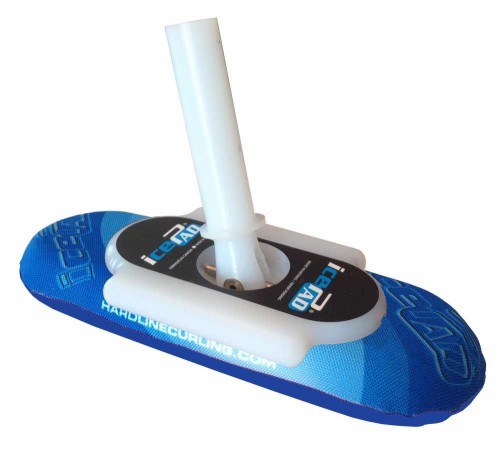THE Scottish-governed sport of curling is facing “broomageddon” following a total ban on hi-tech brushes.
The brooms have outraged many curlers because they use high-tech, stiffer bristles that make the job of the sweeper much easier.
Now the Perth-based World Curling Federation (WCF) has taken the decision to ban the new brushes – dubbed “Framkenbrooms” – for the entire 2015/16 season.
The ban came into effect just days before the 2015 European championships in Esbjerg, Denmark, where two Scottish teams are competing.
Traditional curling brooms feature a smooth woven fabric, used to brush ice in front of the moving stone to direct it to its target.

Curling was invented in medieval Scotland and a women’s team, lead by Rhona Martin and using old-fashioned brooms, won gold at the 2002 Salt Lake City Winter Olympics.
In a statement released ahead of the opening matches on Thursday, the WCF said there would be a “moratorium” on brooms with “fabric which has been textured, sealed or modified from its original woven form.
It goes on to warn: “This includes fabric which has a woven appearance but which has had a PVC (or similar chemical) waterproofing treatment applied over the woven surface, effectively sealing the outer side of the fabric in Contact with the ice.
The ban also outlaws the “‘Hardening’ or ‘stiffening’ inserts located between the outer fabric and internal cushioning material of the brush head.”
The statement made it clear that teams competing at Esbjerg had been made aware that the ban was a possibility, giving them time to acquire the correct brooms for the event.
The new wave of curling brooms have been at the centre of an ongoing controversy which some sports fanatics are dubbing “broomageddon.”
The furore came to a head on October 14, when 22 top teams from across the sport signed a statement saying that they would not use brooms which sweep with the new “directional fabric.”
The strongly-worded statement – penned by Team Canada lead Nolan Thiessen – declared: “Numerous teams throughout the world have done testing on various broom fabrics and have noticed beyond a reasonable doubt, with visual video evidence, that these fabrics can affect the path of a rock to an extent that we are not comfortable with in the tradition of our game.
“Strong sweepers who have put in the effort to get bigger, stronger, faster, biomechanically sound and more athletic should be rewarded, not the team with the best technology.”
Outrage in the curling community caused the WCF to put a last-minute temporary ban on the new broom for the Pacific-Asia Championships in Almaty, Kazakhstan earlier this month.
But the new ban will last “for the remainder of the 2015/16 season or until such time as the WCF Board determines otherwise.”
Two Scots teams – one men’s and one women’s – are currently competing against 18 other national squads for the much-coveted European championship title.
The tournament is still in the round-robin phase, but Scotland’s teams have suffered mixed fortunes so far.
The women’s team have won only half of their matches – losing their most recent to Russia on Sunday evening by a slim one point margin.
Meanwhile the men’s team have enjoyed only one victory – against the Czech Republic – suffering two losses at the hands of Norway and reigning world champions Sweden.

